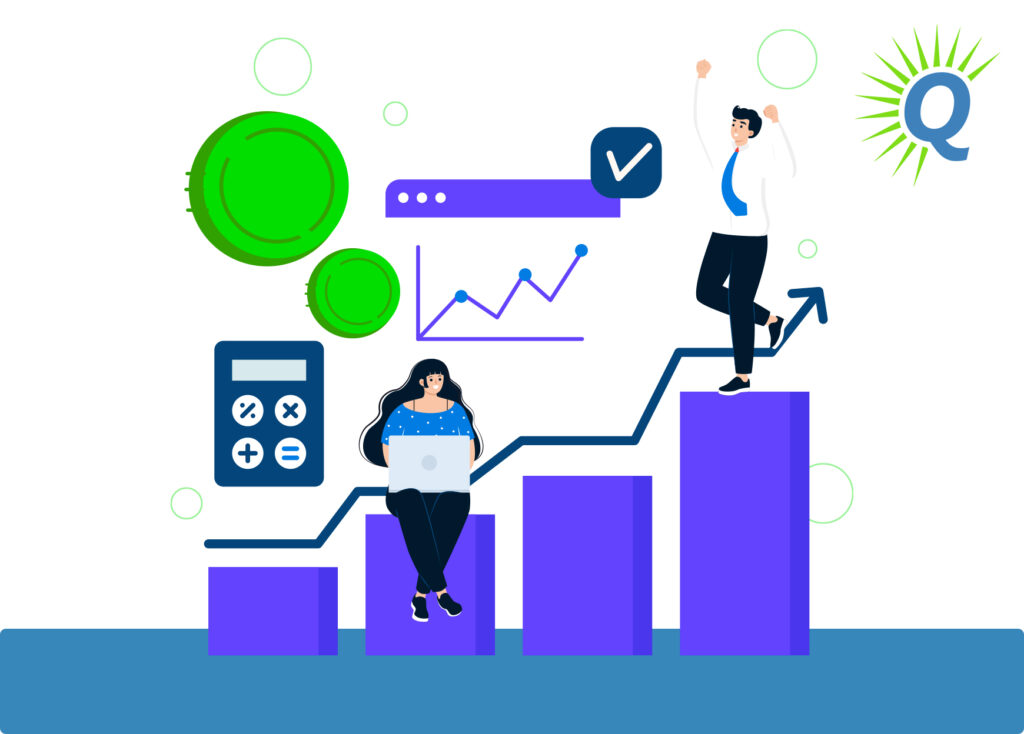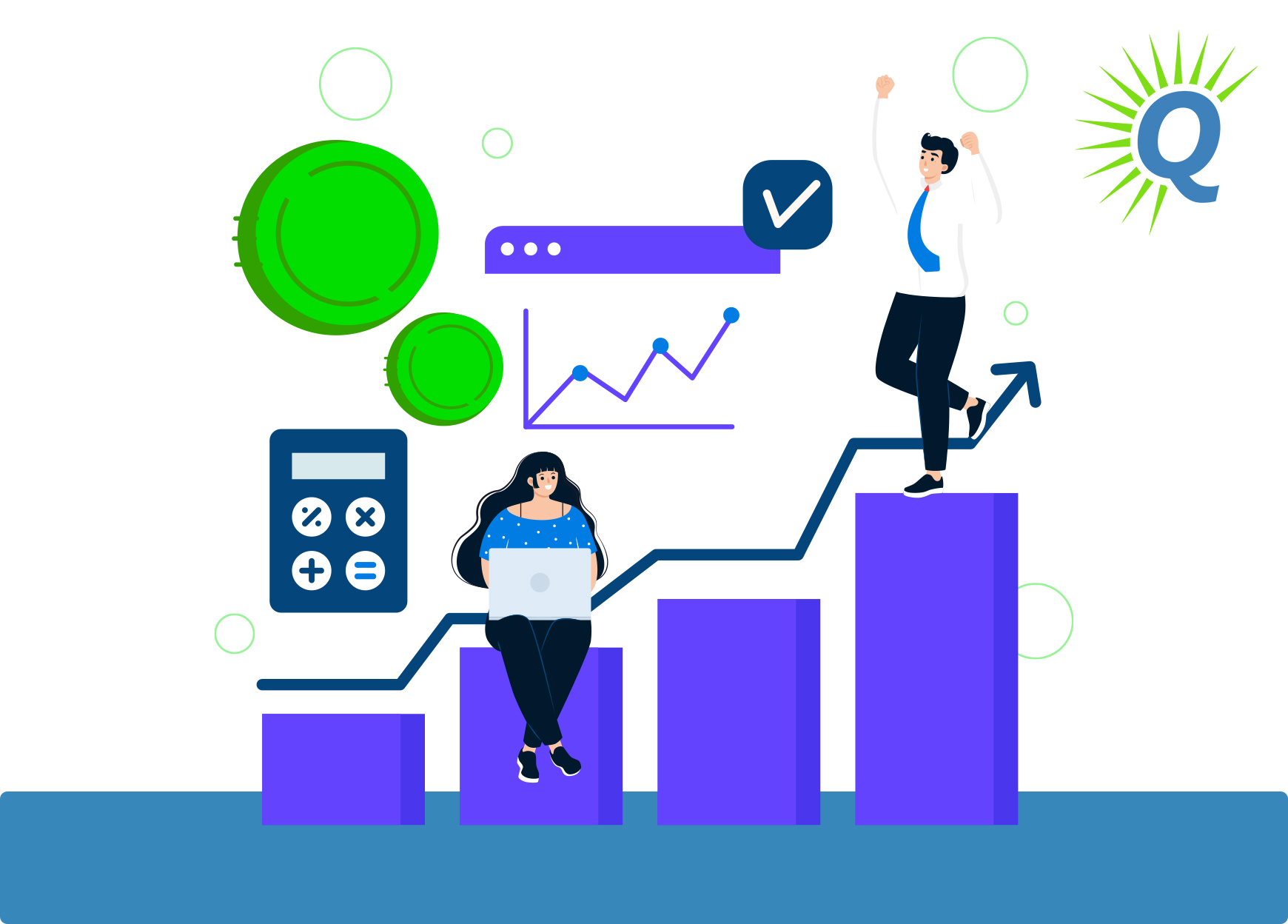Topics:
Never Miss a Beat - Get Updates Direct to Your Inbox
FILTER:


Do You Need a Business Valuation for Your SBA Loan?
By Quiet Light
When buying or selling an online business, securing financing can make or break a potential deal. If you want to finance through an SBA loan, preparation is important. One great way to get prepared for your application is by getting a business valuation. Let’s dive in and discover why this strategic move might be key to getting approved for an SBA loan.
In this article, we discuss:
- Three key requirements for SBA loan approval
- How to calculate business value for SBA loan approval
- Key documents you need to get your SBA loan approved
- Six steps to get approved for an SBA loan
Related Article: 5 Benefits of a Business Valuation


Three Key Requirements for SBA Loan Approval
There are many SBA loan requirements, but you can break them into three key categories. These include:
- The business must be able to repay the loan.
- You must have the personal qualifications to run the business.
- The deal structure must meet SBA loan requirements.
The business must be able to repay the loan
All SBA lenders need to establish that the company in question has enough cash flow to repay the loan.
On one hand, you can use the business’s earnings to repay the loan (as opposed to your personal income). Still, the Small Business Administration wants to ensure that those earnings are enough. There are many things the lender considers when making this evaluation.


“All SBA lenders need to establish that the company in question has enough cash flow to repay the business loan.”
Minimum debt-to-earnings ratio
The main way your lender assesses whether the business can repay a loan is by looking at its debt-to-earnings (DTI) ratio. The debt-to-earnings ratio is a comparison of how much the business earns vs how much the business owes in loan payments.
These calculations may need business bank statements, financial statements, and business tax returns. This information helps your lender determine business debt, income, and other key metrics. While there may not be any specific DTI requirements, you’ll have a better chance of gaining approval if it’s below 50%.


Tax return requirements
The Small Business Administration usually asks for the last three years of US-based tax returns (bankers don’t usually accept foreign tax returns). However, there can be exceptions if you show the business’s financial situation with less than three years of tax returns.
How the business valuation will impact the approved loan amount
SBA loan approval amounts depend on the value of the business in question. This is why a professional valuation is an important part of the approval process. During the application process, your lender will hire a valuation company to figure out the business’s value.
If they assess that the value is lower than your offer or the loan amount, they will lower the maximum loan amount. In other words, valuation helps to determine SBA loan limits.


When calculating value, most valuation companies use an earnings multiplier method (such as the SDE multiple method). We’ll discuss this in more detail later on.
“To get approved, you’ll also need to show the SBA you have the right personal and financial experience.”
You must have the personal qualifications to run the business
To get approved, you’ll also need to show the SBA you have the right personal and financial experience.
This means that your personal debt-to-earnings ratio is part of the eligibility requirements. If you currently have high debt burdens and low income, it will be much harder to gain approval. You’ll need to provide personal financial statements and tax returns during this process.
Your lender will use these documents to determine if you have enough income to support yourself and your dependents. They’ll also use this information to determine if you’ll need to draw a salary from the business. Taking a salary could change the business’s debt-to-earnings ratio.


The lender will also want to look at your personal credit score. The higher your score, the better chance you have at winning approval. Similarly, they’ll assess whether you’ve taken on any recent debt. Any real estate assets that you own can act as SBA guarantees, helping you meet approval requirements.
Besides personal finances, SBA lenders also look at your personal background and resume. This is because they want to know you have the skill sets, knowledge, and experience to successfully run a small business. As a result, loan applicants who don’t have relevant experience may find it harder to win approval.
Get a free, individually-tailored valuation and business-readiness assessment. Sell when you're ready. Not a minute before.Thinking of Selling Your Business?
The deal structure must meet SBA loan requirements
SBA loan programs also check to ensure that any deal structure meets their requirements. There are several things to think about when it comes to deal structure requirements.
Purchase price loan percentage requirements
For starters, SBA loans have requirements about how much of the total purchase price the loan can cover.


The exact amount you’re required to pay for the down payment varies based on the type of SBA loan you apply for. In addition, the size of the loan also impacts down payment requirements. You can expect to pay as little as 10% or as much as 30%.
The portion of the purchase price not covered by the loan is the responsibility of the buyer and seller.
Down payment requirements
With SBA loans, the buyer must put down at least 10% of the total purchase price as a down payment. However, it’s often better to put down more than 10%. Any portion that is not covered by the loan or the down payment could potentially be covered by seller financing.
Seller financing and SBA loans
If the loan covers 80% of the purchase price and the buyer puts down 10%, there is still 10% left to cover. The seller could cover this portion under a seller-financed deal. However, while lenders love to see seller-financed deals (it encourages both parties to play nice), many sellers may not like the terms.
The SBA requires that seller financing is on a two-year standby. This means the seller has to wait two years after closing to start accepting their portion of financing. Naturally, this is less than ideal for most sellers. As a result, sellers tend to prefer non-seller-financed SBA loan deals.


If you’re trying to secure an SBA loan to finance a small business acquisition, it may make sense to make a larger down payment. This could help reduce dependency on seller financing.
Allowable deal structures
There are several commonly allowed deal structures when it comes to SBA loan requirements. These include:
- Full acquisition of business
- Cash and owner financing
- All-cash (including SBA loan) acquisition
- Consulting agreements
“Speak with a qualified business Advisor to make sure the deal structure you want fits the rules.”
Disallowed deal structures
Commonly disallowed deal structures include:
- Earn-outs
- Partial buyouts or partial-equity buyouts
- Performance-based financing
- Employment agreements
- Long-term expensive consulting agreements
Speak with a qualified business Advisor to make sure the deal structure you want fits the rules.
How to Calculate Business Value for SBA Loan Approval
The most common way to calculate value for small businesses is the SDE multiple method.


SDE multiple method
According to the SDE multiple method, the value of a for-profit business is equal to the seller’s discretionary earnings times a multiple. Put another way:
Business value = SDE x the multiple.
Calculating SDE
SDE is a measure of the true money-generating capacity of a business for the owner. It is the pretax and pre-interest earnings of a company before taking into account certain expenses, expenses like:
- Owner’s compensation
- One-time investments
- Noncash expenses
SDE calculations start with income, then add back all allowable discretionary expenses. In order to include all add-backs, it’s important to work with an experienced Advisor when valuing a company.
Understanding the multiple
The multiple measures the tangible and intangible aspects of a company’s value outside of SDE. While this encompasses many individual factors, we can group them into categories known as the Four Pillars of Value. These include:
- Growth
- Risk
- Documentation
- Transferability


Key Documents You Need for SBA Loan Approval
The loan application process requires significant documentation. However, you can make the process easier by preparing several key documents ahead of time, like:
- Personal financial statement
- Three years of your personal tax returns
- 4506-T form
- Loan application form
- Borrower information form
- Pro forma financial reports
- Business plan
- Your resume
Remember, financial lenders want to see your personal financial situation clearly before deciding whether to approve your loan request. As a result, you’ll need your personal financial statement and three years of tax returns during the SBA loan process. The 4506-T form helps lenders confirm the accuracy of your provided tax return.
The loan application form is specific to whichever bank or loan program you choose. However, regardless of your bank, you’ll also need to fill out a borrower information form. This is purely so that the Small Business Administration can keep track of who is borrowing from them.
Pro forma financial records serve to inform the bank about your projections for the small business that you’re acquiring. These financial records could include business assets, working capital, business finances, equipment financing, and more.


Lastly, many lenders request that you submit a business plan and your resume when applying. This helps them see that you have a viable plan for the business and the necessary qualifications to execute it.
“The loan application process requires significant documentation. You can help make the process easier by preparing several key documents ahead of time.”
Six Steps to Get Approved for an SBA Loan
There are six common steps required for applying and getting approved for an SBA loan.
Get prequalified
First, talk to a banker to see if you and the business you’re interested in buying could qualify for an SBA loan. They will let you know if anything about your situation rules out eligibility for loan approval.
Submit your application
Next, gather and prepare all of your documentation and paperwork to apply for the loan. This step can take some work and time.


Receive a commitment from your bank
After the bank analyzes your application, they will either accept or deny your application. If it’s accepted, you’ll receive a commitment from your bank for underwriting.
Receive underwriting approval
During the underwriting process, your bank or lending institution will go through all of your provided information to assess whether you are a worthy borrower. They’ll determine the viability of the business, your personal situation, and more.
Get loan authorization
If underwriting approves your application, your lender will notify you that you’ve qualified for the loan. Congratulations!
Complete closing
Lastly, you and the lender sign all necessary documents in order to finalize the loan. After securing financing, you can move forward with the seller, bringing you one step closer to successfully acquiring the business.
Outsmart the startup game and check out our listings. You can request a summary on any business without any further obligation.Buy a Profitable Online Business





